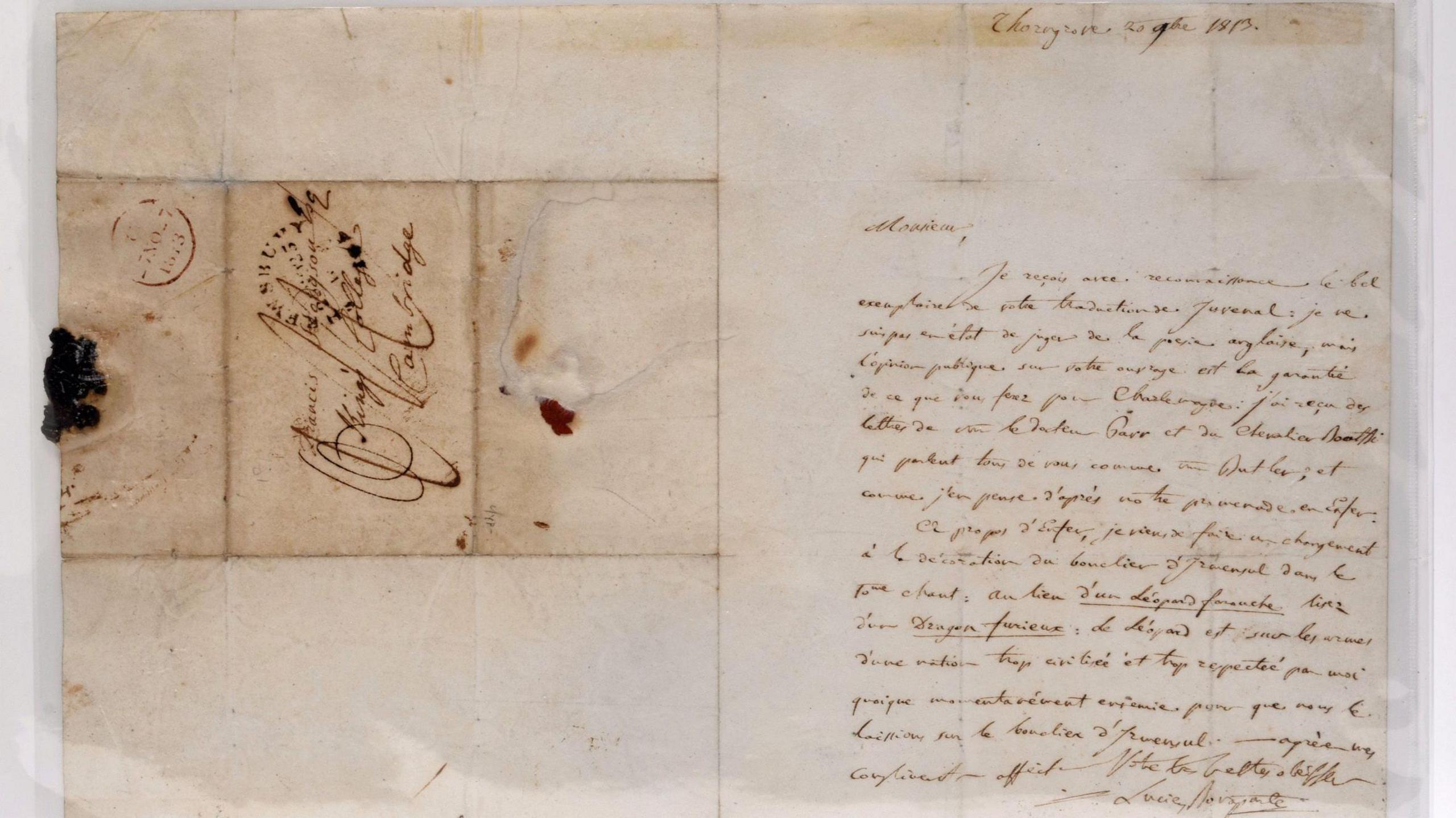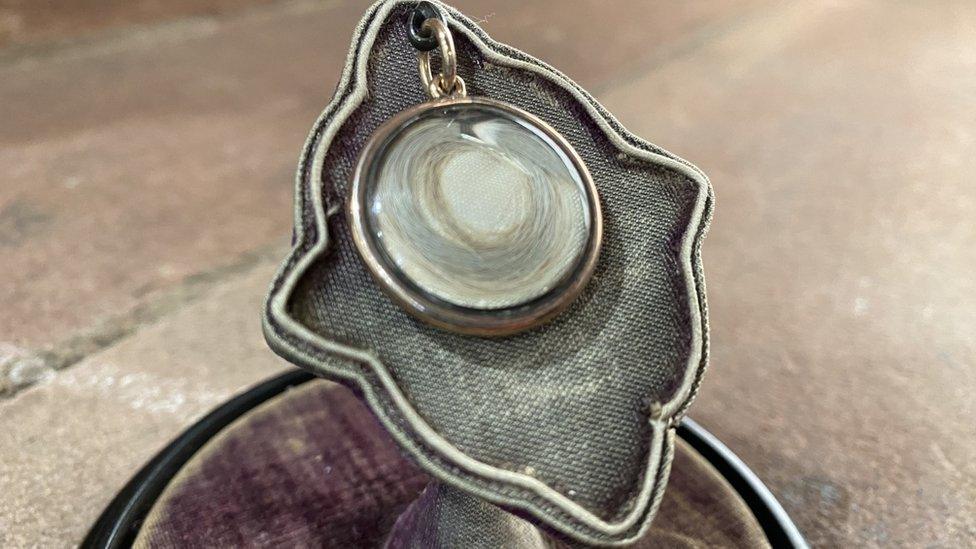Letter written by Napoleon's brother to be sold

- Published
A letter, written by Napoleon Bonaparte's younger brother, will be sold at auction in Shrewsbury on Wednesday.
Valued at £350 to £450, it was written by Lucien Bonaparte while he was a paroled prisoner in 1813.
At the time it was sent, he was living at Thorngrove, an 18th-century house in Grimley, Worcestershire.
Lucien Bonaparte was writing his epic poem, Charlemagne, also known as The Church Delivered, and in the letter he seeks help to translate the verse from French to English.
The letter has part of his "LB" seal remaining, and has been professionally conserved.
It will be sold with a translation of the original French wording, as well as various notes and pictures.
Halls Fine Art Auctioneers and Valuers' stamps specialist, Andy Neal, described the letter as being "of postal, historical and literary importance".
Lucien Bonaparte was a French politician and diplomat of the French Revolution, who also participated in the coup that brought his brother, Napoleon, to power.
In 1810, he set sail from Italy to start a new life in the USA but was captured and brought to Britain, where he became a paroled prisoner.
He spent time at Dinham, near Ludlow, and then purchased the Thorngrove house near Worcester.
Bonaparte and his family were restricted to a 10-mile radius, and all his mail was inspected by Lieutenant Colonel Francis Leighton of Shrewsbury, before being posted.
The Worcester postmaster would only accept mail that carried a “secret mark” to denote inspections had been completed.
The letter on sale at auction was posted in Shrewsbury on 25 November 1813 to Cambridge.
It is thought it was smuggled to Shrewsbury to avoid censorship, as there was no trace of a secret mark.
"The letter is to Francis Hodgson, Fellow at Kings College, Cambridge," said Mr Neal.
"Hodgson had translated the poetry of Juvenal into English, and Lucien was seeking his help to translate his own epic poem Charlemagne."
Follow BBC Shropshire on Facebook, external, X, external and Instagram, external. Send your story ideas to: newsonline.westmidlands@bbc.co.uk, external
Related stories
- Published8 December 2023

- Published9 June 2015